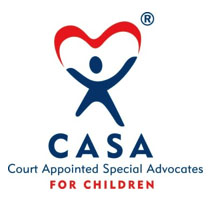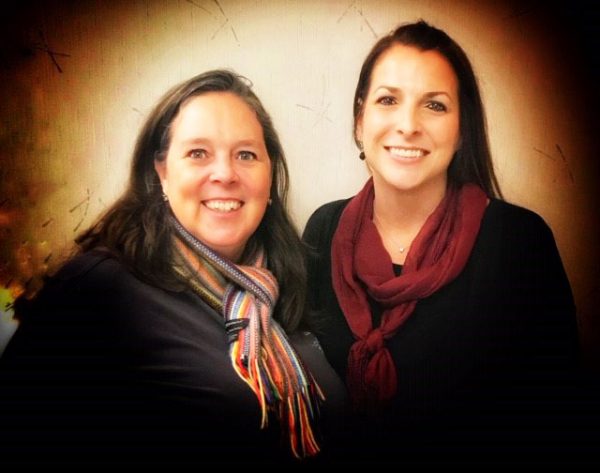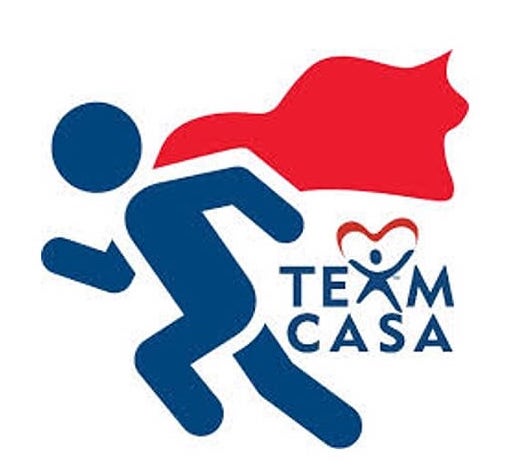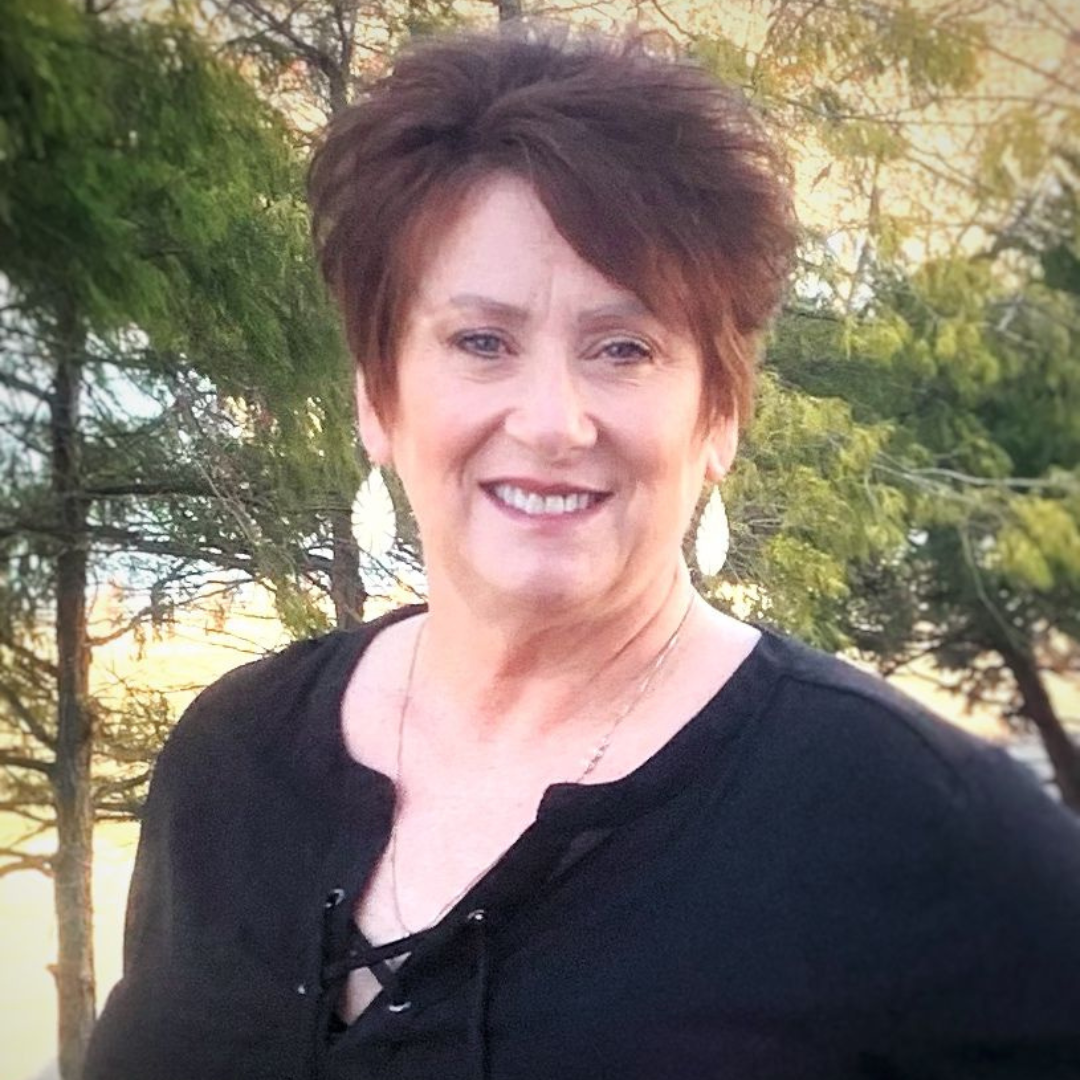Government shutdowns such as the one that occurred earlier this year have a far-reaching effect. Not only do families employed directly by the government suffer, but so do those who receive direct services from agencies who depend upon federal grant funding.
CASA is one such agency. CASA is a non-profit organization that trains community volunteers to become Court-Appointed Special Advocates who speak  in the best interest of abused and neglected children in local courts. In our area, CASA operates as A Child’s Place CASA Ltd. and CASA for Children Inc.
in the best interest of abused and neglected children in local courts. In our area, CASA operates as A Child’s Place CASA Ltd. and CASA for Children Inc.
CASA receives partial funding from a federal grant that assists them in providing services to the children in their care. This grant comes from the Victim of Crimes Act (VOCA) fund. The Victims of Crime Act of 1984 was the federal government’s attempt to help victims of criminal actions through means other than punishment of the criminal. Through this act, the Crime Victims’ Fund was established.
The fund is supported by fines collected from persons convicted of crimes against the United States (with certain exceptions). This funding is funneled to each state by the U.S. Department of Justice, giving critical financial assistance to eligible victim assistance programs such as CASA. VOCA grants are reimbursement grants, which means that money is received weeks or even months after the expenditures occur.
When the government shut down in 2013, CASA staff found themselves evicted from their Wellsburg office because of the ripple effect of their VOCA reimbursement being delayed. Rhonda Stubbs, executive director of A Child’s Place CASA Ltd. in Brooke, Hancock and Jefferson (Ohio) counties, has worked hard since that time to stay ahead of any potential shutdowns.
Susan Harrison, executive director of CASA for Children Inc. in Ohio, Marshall, Wetzel and Tyler counties, agrees that doing her best to keep ahead of possible shutdowns is vital to staying afloat.

“This is our passion,” Susan says of the children represented by CASA. This passion costs significantly more than the annual VOCA grant; therefore, it is dependent to a large degree on private donations.
“One person of integrity can make a difference.” — Elie Weisel, writer, political activist, Holocaust survivor
Both Rhonda and Susan are committed to making a difference in the lives of the youngest victims of abuse and neglect. This dynamic duo has done this challenging work for quite some time — Rhonda has been with CASA for 22 years, and Susan, 11. During this time, they have seen the numbers of children in the program steadily climb. In 2007, the number of children in the CASA program suddenly doubled from the year before. Then in 2008, the number from the previous year tripled. Since then, the numbers have continued to tick upward. Susan and Rhonda attribute much of this increased caseload to the opioid crisis affecting our local area — yet another instance of a devastating ripple effect.
Currently, Susan has about 230 children for whom CASA advocates in her counties. Rhonda’s caseload stands at approximately 128 youngsters. In addition to children with assigned CASAs, the program monitors many other children who are on a waiting list for a volunteer advocate of their own. “There are never enough volunteers,” Susan says.
“I believe the best service to the child is the service closest to the child, and children who are victims of neglect, abuse or abandonment must not also be victims of bureaucracy. They deserve our devoted attention, not our divided attention.” — Kenny Guinn, former Governor of Nevada
A lack of attention to children and their needs was what prompted the creation of this unique program. CASA was started in King County, Wash., in 1977 by Judge David Soukup, who organized the first group of volunteers after becoming frustrated that the state’s foster care system did not provide for representation for children in court the way that it did for parents and government agencies. The King County system became a national model that has grown to more than 900 CASA agencies across the U.S. today.
 CASA volunteers are the backbone of the program’s success. Their only job is to represent the child, ensuring the “devoted attention” of the court system. These volunteers undergo 30 hours of intensive training and are then asked to commit at least 18 months to the agency. During their time of active service, CASAs can expect to log 10-15 volunteer hours each month. The volunteers review records, research information and speak to all parties involved in a child’s life — parents, teachers, health care professionals.
CASA volunteers are the backbone of the program’s success. Their only job is to represent the child, ensuring the “devoted attention” of the court system. These volunteers undergo 30 hours of intensive training and are then asked to commit at least 18 months to the agency. During their time of active service, CASAs can expect to log 10-15 volunteer hours each month. The volunteers review records, research information and speak to all parties involved in a child’s life — parents, teachers, health care professionals.
Rhonda says that CASA volunteers are highly regarded by the attorneys and judges involved in each case. Judges, in particular, rely on CASAs’ fact-based testimony to make informed decisions about each child’s future. Susan says that the program’s goal is to have a single, consistent adult as the voice for each child until “permanency” is achieved — when that child has been successfully integrated into a safe, permanent home with parents, relatives or an adoptive family. According to the CASA website, a child utilizing their services is more likely to bond with that permanent home once it is found. Children in the program are also less likely to have delinquency issues.
“Children are the hands by which we take hold of heaven.” — Henry Ward Beecher, minister and social activist
Children’s causes always tug at the public’s collective heartstrings, and CASA is no exception. When their VOCA reimbursements were delayed indefinitely by the recent government shutdown, the public and loyal CASA supporters stepped in to assist. Rhonda’s office holds a monthly “by donation only” bake sale as an ongoing fundraiser. When the bakers heard earlier this year that the funding had been delayed, they responded by contributing a record number of baked goods. In turn, when the public heard about the funding snafu, they dug even deeper into their wallets when making donations for the goodies.
“We sold a $20 Rice Krispie treat!” Rhonda shares.
 Fundraisers such as these are the bread and butter of CASA’s funding. The next bake sale will be held at lunchtime on Friday, March 15, at the Brooke County Courthouse in Wellsburg. At noon, Saturday, March 16, a Quarters for CASA quarter auction will be held at the Masonic Lodge Annex in Weirton. For additional information on the bake sale or quarter auction, call Rhonda at 304-737-4444.
Fundraisers such as these are the bread and butter of CASA’s funding. The next bake sale will be held at lunchtime on Friday, March 15, at the Brooke County Courthouse in Wellsburg. At noon, Saturday, March 16, a Quarters for CASA quarter auction will be held at the Masonic Lodge Annex in Weirton. For additional information on the bake sale or quarter auction, call Rhonda at 304-737-4444.
Also on March 16, there will be a steak fry at the Chevron Event Center at the Marshall County Fairgrounds beginning at 4 p.m. On Saturday, April 20, the CASA Superhero 5K Race will be held at The Highlands beginning at 8:30 a.m. For more information about the steak fry or the 5K race, contact Susan at 304-233-0333.
In addition to attending one of these fundraising events, there are other ways to become a child’s hero. For more ways to help financially, visit the local CASA website. If you are interested in becoming a child’s voice and advocate as a CASA volunteer, email either Rhonda or Susan for details about upcoming informational meetings.
Mister Rogers said it best when he stated, “Anyone who helps a child is a hero to me.”
UPCOMING FUNDRAISERS
• BAKE SALE: Lunchtime, Friday, March 15, at the Brooke County Courthouse in Wellsburg. For information, call Rhonda at 304-737-4444.
• QUARTERS FOR CASA QUARTER AUCTION: Noon, Saturday, March 16, Masonic Lodge Annex in Weirton. For information, call Rhonda at 304-737-4444.
• STEAK FRY: 4 p.m., March 16, Chevron Event Center at the Marshall County Fairgrounds. For information, call Susan at 304-233-0333.
• SUPERHERO 5K RACE: 8:30 a.m., Saturday, April 20, at The Highlands. For information, call Susan at 304-233-0333.
• A lifelong Wheeling resident, Ellen Brafford McCroskey is a proud graduate of Wheeling Park High School and the former Wheeling Jesuit College. By day, she works for an international law firm; by night, (and often on her lunch breaks and weekends) she enjoys moonlighting as a part-time writer. Please note that the views expressed in her writing are solely her own and do not necessarily reflect those of anyone else, including her full-time employer. Through her writing, Ellen aims to enlighten others on causes close to her heart, particularly addiction, recovery and equal rights. She and her husband Doug reside in Warwood with their clowder of rescued cats, each of whom is a direct consequence of his job as the Ohio County Dog Warden. Their family includes four adult children, their spouses and several grandkids.



